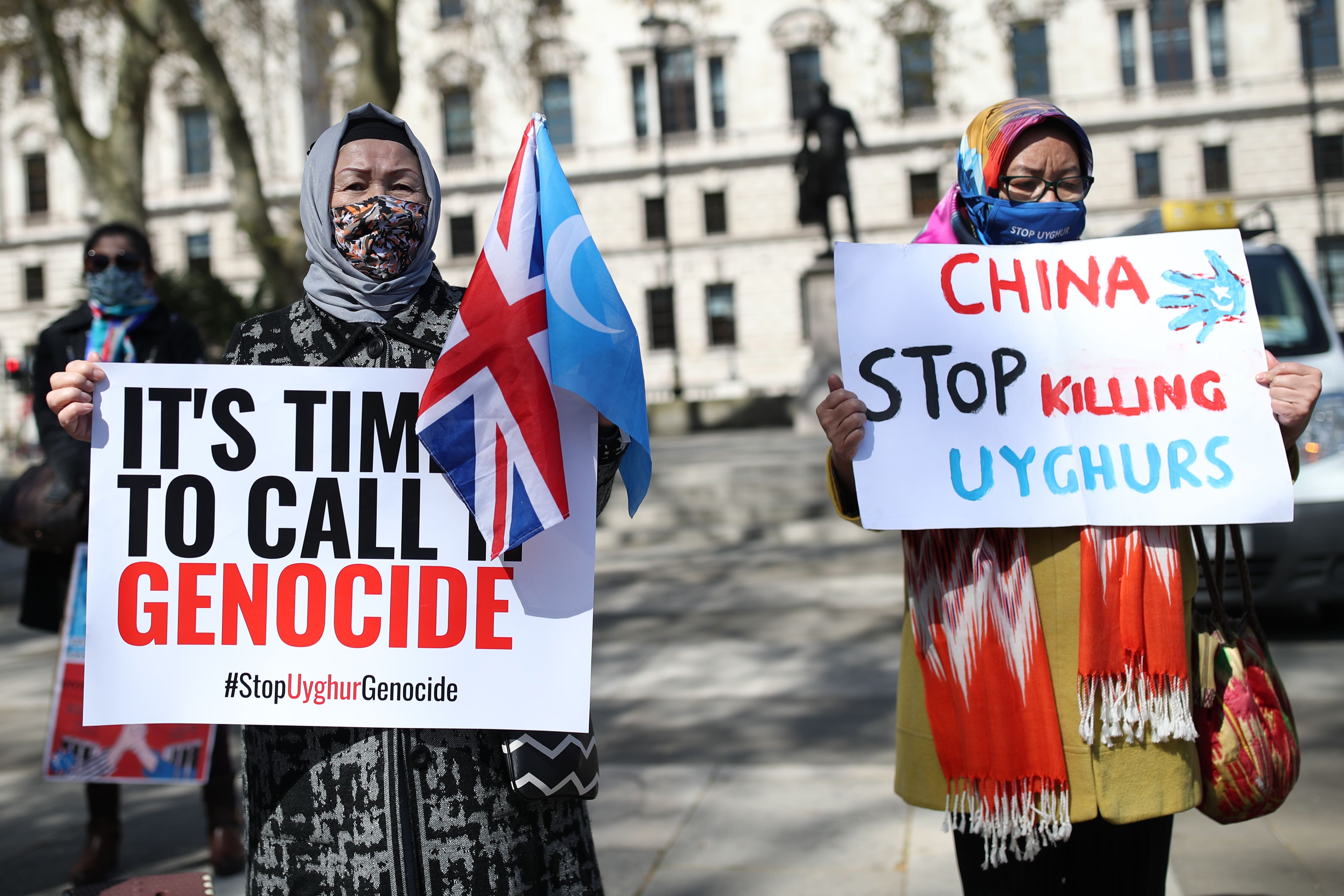Governor of China’s Xinjiang cancels controversial visit to UK
China is alleged to have forcibly sterilised women and put children in ‘concentration camps’ in the province.

Your support helps us to tell the story
From reproductive rights to climate change to Big Tech, The Independent is on the ground when the story is developing. Whether it's investigating the financials of Elon Musk's pro-Trump PAC or producing our latest documentary, 'The A Word', which shines a light on the American women fighting for reproductive rights, we know how important it is to parse out the facts from the messaging.
At such a critical moment in US history, we need reporters on the ground. Your donation allows us to keep sending journalists to speak to both sides of the story.
The Independent is trusted by Americans across the entire political spectrum. And unlike many other quality news outlets, we choose not to lock Americans out of our reporting and analysis with paywalls. We believe quality journalism should be available to everyone, paid for by those who can afford it.
Your support makes all the difference.A Chinese governor accused of genocide has reportedly pulled out of an upcoming trip to the UK after MPs called for his arrest.
The BBC cited a Foreign Office (FCDO) spokesperson as saying they understood Erkin Tuniyaz, the governor of north-western Xinjiang province, had cancelled his participation in planned in-person talks with FCDO officials in Britain.
It came after a group of seven MPs, including former Tory leader Sir Iain Duncan Smith, wrote to Attorney General Victoria Prentis asking her to give “serious consideration” to an application by an alleged torture-sufferer to prosecute the governor while he was in the UK.
The FCDO was widely condemned last week by MPs for entertaining the idea of talks with the governor given China’s treatment of the Uighur Muslims in Xinjiang, which include allegations of forcibly sterilising women and putting children in “concentration camps”.
In 2021, MPs approved a non-binding Commons motion which declared Uighur Muslims and other minorities are “suffering crimes against humanity and genocide” in Xinjiang.
On Monday, Sir Iain accused Mr Tuniyaz of murder as he joined Uighur activists outside the FCDO’s King Charles Street headquarters protesting against the planned visit.
Sir Iain told protesters: “We do not meet with people who murder others. Government should be above that.
“There is no negotiation until China stops what it is doing and restores the rights, privileges and freedoms for the people of Xinjiang who are Uighur.”
He added: “We face the reality that there is a strong possibility that the Government may end up in some other location with officials meeting the man who is responsible for what we believe to be a genocide in Xinjiang. That is simply unacceptable.
“It is unacceptable for the Government to pretend that because a minister doesn’t meet him somehow it is unofficial. It is not.”
The protesters stayed outside the FCDO’s headquarters on King Charles Street in Westminster throughout Monday.
There were speeches by activists and Labour peer Helena Kennedy, who co-chairs the Inter-Parliamentary Alliance on China.
The activists waved placards reading “freedom for Uighurs” and “China, stop your genocide against the Uighurs” before delivering a protest letter to the FCDO.
Last week, the Prime Minister’s official spokesman, when asked why Mr Tuniyaz had not been sanctioned, said in a briefing of journalists: “My understanding is that FCDO officials are meeting the governor of Xinjiang to make clear the UK’s abhorrence over the treatment of the Uighur people and to underline that we will not relent from exposing the horrors from which they are being subjected.
“We will continue to reiterate this message so the Chinese authorities know they cannot hide their abuses. We do maintain diplomatic channels so we can pass on these messages and make clear our position.”